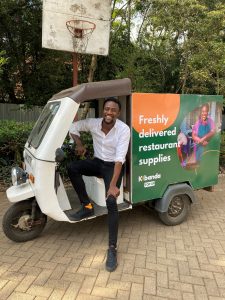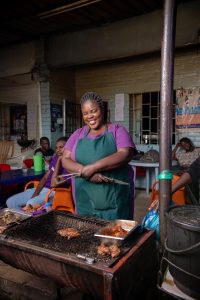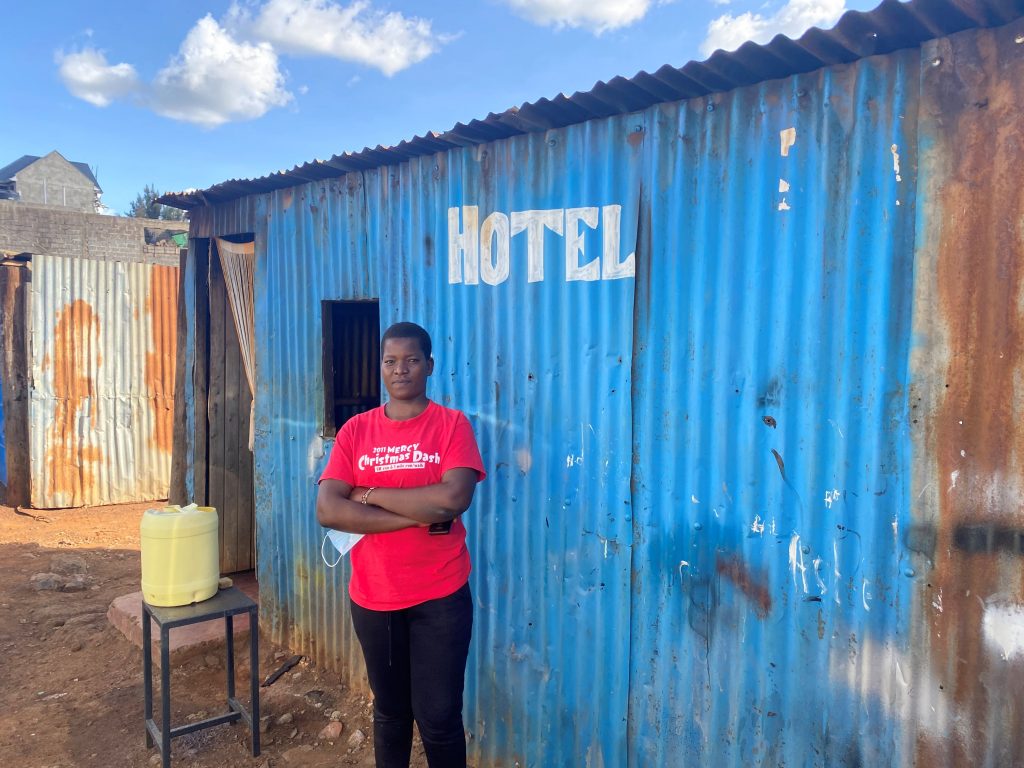When Njavwa Mutambo applied to the TEF entrepreneurship program in 2016, he started as the only employee of Musanga, a Zambian start-up connecting truck riders and delivery riders.
Musanga Logistics’ connects users who want to send packages – such as restaurants, small retailers and individuals – through independent couriers.
Now, he says, the platform has 1500 drivers, transportation for Unilever, Colgate, a lot of FMCG brands, specifically in Zambia.
“The platform was the key differentiator in our business,” Njavwa says in an interview with the Tony Elumelu Foundation. “It was very tech-enabled and that was the key thing that customers wanted and so that’s what we built.”
Afterwards, we had people looking to buy the software we had built, and considering several factors, the company pivoted to a low-cost model where instead of doing the transport and the transaction, we provide software to transport companies that want to manage their fleets.
Njavwa says he is heavily inspired by his mother, who, in addition to being a nurse, became an entrepreneur with a restaurant in Lusaka’s central business district.
“My mother was the first entrepreneur I knew. I saw her sacrifice leisure and comfort to manage both her business and her job.”
With his wealth of experience, Njavwa is now building Kibanda Top-up, a start-up focused on the informal restaurant business many African countries are familiar with.
Called buka or mama-put in Nigeria and vibanda in Kenya, half of Africa’s population eat from small and medium restaurants that are largely informal, feeding millions of people every day.
Taking the lessons from his previous business, Njavwa’s focus is now on the food distribution company which was launched just two months ago.

“These restaurant owners are not unlike my mother. They have dreams and aspirations for themselves and their families; they are working hard to ensure the next generation of Africans have the tools required to achieve the African dream.”
Kibanda Top-up is helping restaurant access the goods that they need daily by handling the distribution and sourcing of those products.
Conquering Logistics in Africa
“Logistics remains a key constraint to growth for businesses in Africa,” Njavwa says, “but it is even harder when you are moving small products, because large companies don’t want to invest in the kind of vehicles that these small businesses need, and to scale you need to serve thousands of them.”
Njavwa says his company is reducing the cost of delivery significantly, having partnered with a company that provides electric tricycles or tuk-tuks as they are popularly known in Kenya, for this purpose.
“If you are trying to solve food problems in Africa, you must think about questions like: how does a farmer get food from the farms to a restaurant in the main city, and how does he/she get there affordably?
“So, we are working with the electric vehicles here in Kenya which is one of the first utilising zero petrol. We have already seen a 25% reduction in the cost of delivery.”
Kibanda top-up also has a sales automation tool to enable sales agents track and follow up with and manage last-mile customers.
“The main problem we are trying to solve is transport and logistics. We do this by building the tools that help us sell and distribute products more efficiently,” Njavwa says.
Innovating Amidst Food Insecurity
With Covid-19 restrictions, locked borders, and disruptions to supply chains, came the inflation of prices of items including food.

Njavwa’s company is stepping up to the challenge: “This is really the reason why we exist,” he says.
“The reason why the cost of food continues to go up is that there are so many variables when delivering food that fluctuate so much such as the price of fuel which will always impact the cost of transportation”.
“When I got into the TEF Entrepreneurship Programme, I was 21. Now I have taken a business from 0 to 30 employees. The programme is an investment in the entrepreneur because the entrepreneur will evolve and the initial results on the business may not be forthcoming.
“With funding from the Foundation, we were able to prove our model, and raise a significant amount of money afterwards. The seed capital from the Tony Elumelu Foundation was the first money I ever received as an entrepreneur.”
The Need for Like-minded Communities in Business
Last month, a decision was made by social media giant, Twitter, to launch an office in Ghana. As this would be the digital media giant’s only presence in Africa. it inspired discussions about the challenges or considerations companies compare when deciding to operate in a new location in Africa.
For Njavwa, who is originally from Zambia but set up in Kenya, the story is similar.
“You can make something happen in any city in the world, but the probability of success is usually around clusters. Depending on what kind of business you are in, it is important to be in a community or environment that supports it.”
“The main reason why my first company failed to raise money is that at the time, Zambia was not a hot investment destination, and investors just weren’t thinking about investing in Zambia.
“You want to be where people are very like-minded. For example, Nigeria is very entrepreneurial and has a lot of start-ups doing something similar to what we are doing, however, the factors are different for a foreigner who is trying to raise capital, and this influenced my decision to set up in Kenya.”
“Kenya has a lot of access to capital. If I was in another city, we wouldn’t have been able to raise the money that we raised in the space that we raised in the time that we did, but ultimately, we will have to launch in Nigeria.”
The Future of Kibanda Top-up.
Njavwa remains committed to impacting restaurants beyond Kenya.
“We are increasing restaurants’ contributions to Africa’s GDP by helping reduce cost with the supply chain. We are doubling down on our efforts in Kenya and our next location is Lagos – the reason being that we have to be where the majority of restaurants are, and Nigeria has a large number of these informal restaurants.”
Every morning, Kibanda Top-up delivers goods directly to the restaurants using completely electric tuk-tuks which are assembled in Nairobi by ARC Ride, Kibanda Top-up’s partner.
“$5000 was the world to me, now we are closing millions of dollars,” Njavwa says about the impact of the Tony Elumelu Foundation on his entrepreneurial journey. “If that had not happened, we probably would not have been here today. So, luck was democratised in this instance.”


